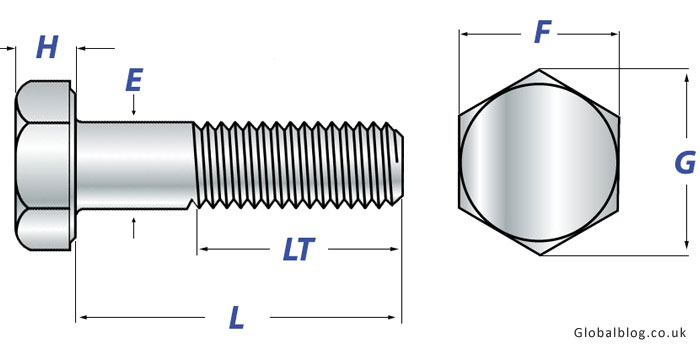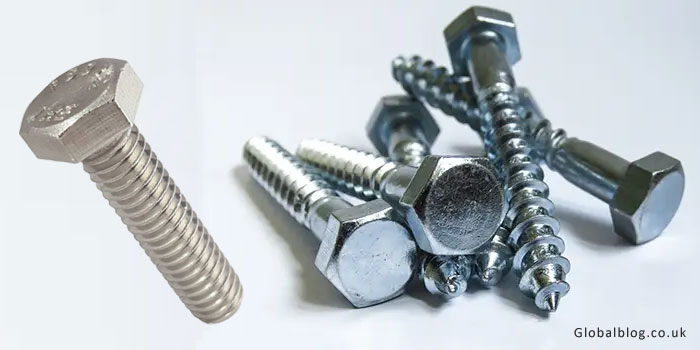Introduction to Hex Head Screws
When it comes to fastening materials together, the hex head screw stands out as a reliable choice. Its unique design and versatility make it a staple in various projects, from DIY home improvements to industrial applications. With its six-sided head allowing for easy tightening with wrenches or sockets, this type of screw can offer both strength and precision. But how do you ensure you’re selecting the right one for your specific needs? Let’s dive into the world of hex head screws and uncover what makes them an essential element in construction and assembly tasks. Whether you’re a seasoned professional or just starting out, understanding these fasteners will set you up for success in any project.
Types of Hex Head Screws and Their Uses
Hex head screws come in various types, each designed for specific applications. One common type is the hex lag screw. This heavy-duty option is ideal for securing wood to wood or other materials, making it perfect for outdoor projects such as decks and fences.
Another popular variant is the hex cap screw. Known for its versatility, the hex cap screw can be used in machinery and automotive applications due to its strong grip and resistance to vibration.
For those needing a more specialized solution, there are flange hex head screws. These have a built-in washer that distributes load evenly, reducing stress on connected parts.
Self-tapping hex head screws offer convenience by drilling their own holes as they are installed. This feature makes them great for quick assembly tasks where precision isn’t critical but speed is essential.
Each type serves unique purposes within construction and manufacturing processes, ensuring you find exactly what you need.
Factors to Consider When Choosing a Hex Head Screw
When selecting a hex head screw, size is crucial. You need to match the screw length and diameter with your project requirements.
Next, consider the thread type. Coarse threads provide better grip in softer materials, while fine threads are ideal for harder substrates.
The environment also plays a significant role. If exposure to moisture or chemicals is likely, opt for corrosion-resistant options like stainless steel or coated screws.
Load-bearing capacity should not be overlooked either. Ensure that the chosen screw can handle the weight and stress of its application.
Think about accessibility during installation. Some spaces may require shorter screws or specific drive types for easier handling. These factors will help you make an informed choice tailored to your project’s needs.
Common Materials Used for Hex Head Screws
Hex head screws are made from various materials, each offering unique benefits. Steel is the most common choice due to its strength and durability. It’s often coated with zinc or other finishes for added corrosion resistance.
Stainless steel offers an excellent alternative when rust prevention is a priority. This material maintains its integrity in harsh environments, making it ideal for outdoor applications.
For lightweight projects, aluminum hex head screws are a great option. They resist corrosion naturally and are easier to work with, though they may not support heavy loads as well as steel.
Specialty alloys can enhance performance even further. These might be used in high-stress situations or specific industries requiring exceptional resistance to heat or chemicals. Understanding these materials helps ensure that you select the right screw for every project need.

Tips for Properly Installing a Hex Head Screw
Installing a hex head screw requires attention to detail to ensure a secure fit. Start by selecting the right size driver bit that matches your screw. This will help prevent stripping the screw head during installation.
Pre-drilling pilot holes can significantly ease the process, especially in harder materials. It reduces splitting and allows for smoother insertion.
When driving the screw, apply consistent pressure while keeping your tool aligned with the screw shaft. Avoiding excessive force helps maintain torque without damaging either component.
Using a washer can enhance load distribution and minimize wear on both surfaces being fastened. It’s an easy step that adds strength to your connection.
Check for proper tightness once installed but be careful not to overtighten, as this could lead to breakage or deformation of materials involved. A little care goes a long way in ensuring durability and reliability in your projects.
Where to Purchase Quality Hex Head Screws
When searching for quality hex head screws, your options are plentiful. Local hardware stores often carry a variety of sizes and materials. These places allow you to inspect the products before purchasing.
For broader selections, consider online retailers. Websites like Amazon or specialty fastener suppliers offer extensive inventories. You can easily compare prices and read customer reviews to ensure you’re making an informed choice.
Industrial supply companies also provide robust offerings for bulk orders. They cater especially well to contractors or businesses needing large quantities without compromising on quality.
Don’t overlook local manufacturers either; they may offer competitive pricing along with customized solutions. Connecting directly can sometimes lead to better deals and more tailored service.
Always check certifications and guarantees wherever you choose to shop, ensuring that you’re investing in reliable products that meet your project’s demands.
Conclusion: Hex Head Screw
Choosing the right hex head screw is essential for any project. With various types available, understanding their specific uses can greatly enhance your work’s efficiency and durability. Consider factors such as size, thread type, and material to ensure you select the best option for your needs.
When it comes to materials, options like stainless steel or carbon steel provide different benefits based on corrosion resistance and strength. Proper installation techniques also play a crucial role in performance. Always follow guidelines to avoid common pitfalls that might compromise your project.
Quality matters too; sourcing screws from reputable suppliers will save you time and potential headaches down the line. By paying attention to these details, you’re not just buying a fastener – you’re investing in the integrity of your work. The right hex head screw makes all the difference in achieving reliable results across various applications.
